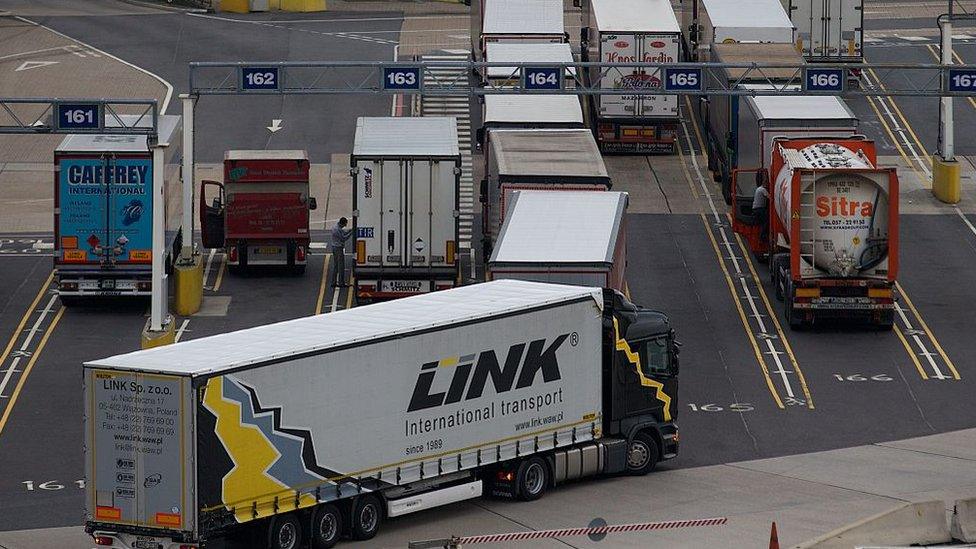Brexit: UK 'must be ready in case of go-slow policy at Calais'
- Published
- comments

There have been warnings about the impact of extra checks at borders like Calais
The Brexit secretary has warned that French authorities could introduce a "go-slow" policy at the port of Calais if there is no Brexit deal.
Dominic Raab said this was the "worst-case scenario" and said that the UK could prepare by using "more amenable ports" in other countries.
There has been widespread concern about the impact of longer border checks at Calais if the UK leaves without a deal.
Businesses use the port to bring in vital components at short notice.
Responding to a Commons question about no-deal planning, Mr Raab appeared to suggest the French could choose to create additional delays, telling MPs: "We also need to prepare for the worst case scenario where the authorities at Calais are deliberately directing a go-slow approach by supporting a diversion of the flow to more amenable ports in other countries."
BBC assistant political editor Norman Smith said the French government had been viewed as among the most hostile to Theresa May's Brexit plans.
Queues and delays
At present, the UK's membership of the EU single market and the customs union allows for the free movement of goods, people and services around Europe.
But the UK government has said it is leaving both of these arrangements as part of Brexit.
The UK and the EU are in negotiations on how their final relationship will work but have yet to reach a deal on key issues.
Both sides say they still want to agree a deal before the UK leaves the EU on 29 March 2019, but are also making plans for what happens without one.
This week the National Audit Office warned that queues and delays were likely at border crossings under a no-deal Brexit, saying exporters did not have time to prepare for new rules.
A "transition" period to cushion the UK's exit from the EU is planned to last until December 2020 - but this is dependent on the two sides reaching agreement on outstanding issues like the Irish border.
Responding to MPs' questions, Mr Raab also accused the EU of taking a "deliberately intransigent approach in the negotiations" and urged them to match what he said was the UK's "pragmatism and imagination".